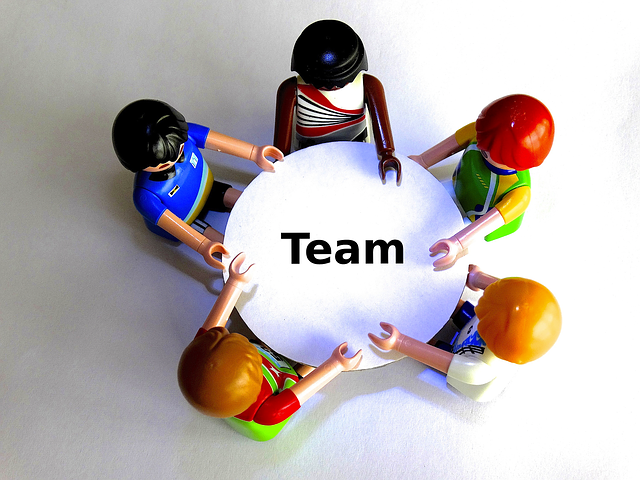How can you ensure your Early Years team is working efficiently?
Managing an Early Years team can be challenging at times, however it can be made easier by thinking about the team and how they work together. It is the role of the leader or manager to oversee the work of those in the team and support each practitioner in growing and developing in their role.
Here are 6 easy tips of how to manage an effective team.
Build positive relationships
It is important to create positive professional relationships with each member of your Early Years team. Sometimes it can be difficult to get along with everyone, however in order to be an effective leader each practitioner needs to feel that they can approach you. Team building activities are a great way to build relationships and get to know your team, these can be as simple as a quick team game at the beginning of a staff meeting or a pizza night. These activities encourage individuals to interact with new people and learn about their colleagues.
Communication
Communication is key is managing an Early Years team. Leaders must be able to communicate effectively, listening to and interacting with their team regularly to ensure everyone is working together and towards the same goal. A good level of communication can be upheld through regular supervisions, appraisals and mentoring opportunities. It is also important for the children to observe positive communication happening regularly to support and develop their own communication and language development with their peers.
Recognition and praise
It has been suggested that work rate can be affected by the amount of recognition or praise that a person receives. Individuals are more likely to work hard and exceed expectations if they feel they are making a difference and their work is appreciated. As a leader, it is a good idea to look for opportunities to praise your team and build motivation and confidence daily. An easy way to do this is through using incentives such as ‘practitioner of the month’ awards or having a ‘treat’ day in the month where the manager brings in some treats for the staff room to recognise and appreciate hard work.
Manage conflict promptly
Conflict is one factor that will need to be dealt with if you are to lead an effective Early Years team. It is important that you do not shy away from conflict or leave it to someone else to deal with. As a leader it is your responsibility to find out the facts and ensure individuals can come to a reasonable outcome. A good leader will look after their team and take over if things become heated, ensuring that each party is understanding one another and problem solve any issues that have arisen.
Lead by example
In order to promote best practice and get the most from your team, you should act as a role model to others. Practitioners in your team are more likely to carry out tasks to a high standard or use their initiative if they see you doing the same. A leader should be someone to look up to and lead practice, for this to happen you need to be projecting a confident and motivated image onto your team. This will also reflect on the children and how they view themselves as they tend to imitate the adults that they have regular contact with.
Make decisions as a team
It can be easy for a manager to make decisions on what is best for the team, whether it is the agenda for a staff meeting or how the room should be set up; however this is not always the best way to guide a team. Practitioners who feel that their opinion is valued and have had an input on the decision making process will often feel happier with the outcome and feel a great deal of passion about what they are doing. This is vital in making sure the team works together to reach its fullest potential.

